Year 11 Summer 2023Science
Science Team Head of Biology – Mrs Ruth Carey Head of Chemistry – Mrs Claire Gee Head of Physics – Mrs Sarah John Biology AQA GCSE – 8461 Chemistry AQA GCSE – 8462 Physics AQA GCSE – 8463 Combined Science (Trilogy) AQA GCSE - 8464
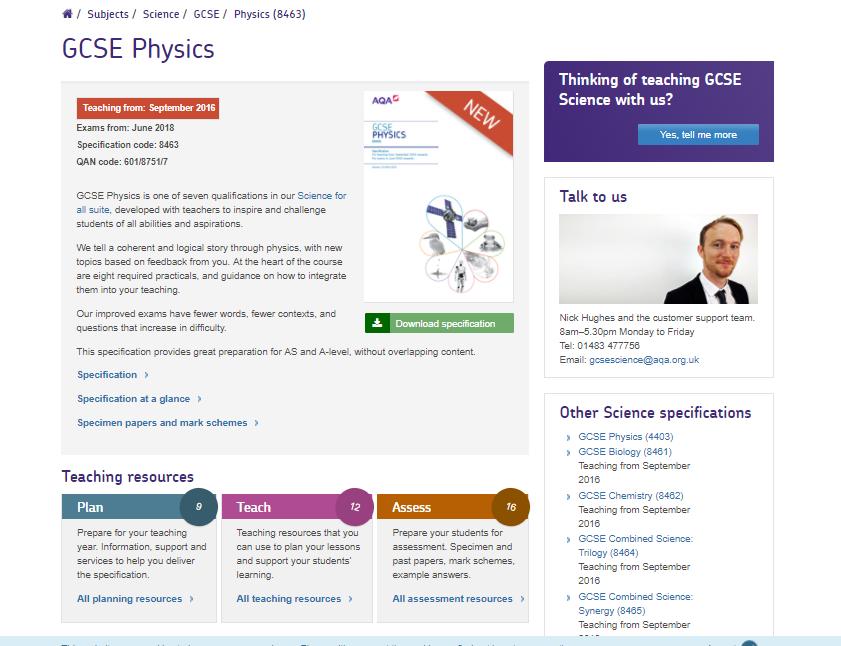
AQA Website: www.aqa.org.uk Specification Specimen & Past Papers
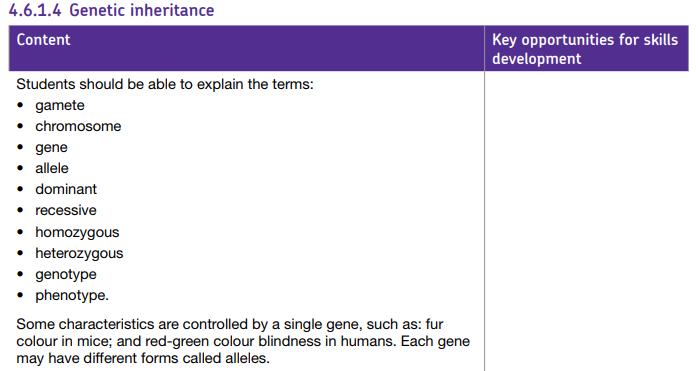
Use the Specification List of relevant key terms Factual information Detail of required skills
Exams GCSE Biology/Chemistry/Physics ►Paper 1 and Paper 2 ►Each are 1 hour and 45 minutes ►Each assess roughly half of the specification (with some common content that is tested on both papers) ►Mixture of multiple choice, short and longer answers Combined Science ►Two papers for each Science (6 papers in total) ►Each are 1 hour and 15 minutes ►Mixture of multiple choice, short and longer answers ►Grades awarded are an AVERAGE of the 6 papers
Science – Methods of Revision ►Reading is not an effective method of revision ►Processing of information – changing the format in some way e.g. mind-maps (detailed!), tables, flow diagrams, images, applying to practice papers or revision grids ►Specimen papers and past papers and marking/checking ►Take lots of breaks and swap subjects ►Removing distractions -no music or phones ►Revise by topic –learn key terms to maximise marks
1. Make your revision resources for a topic (flash cards/notes/mind maps) 1. Include equations, definitions, key explanations, methods for required practicals. 1. Use the specification 4.Test yourself using past paper questions, workbook questions, revision grids. 5. Mark your work. 6. Identify gaps in your knowledge 7. Identify skills gaps (calculations, graphs, longer written answers) REPEAT - Use what you have learnt to upgrade your revision notes & then test yourself again



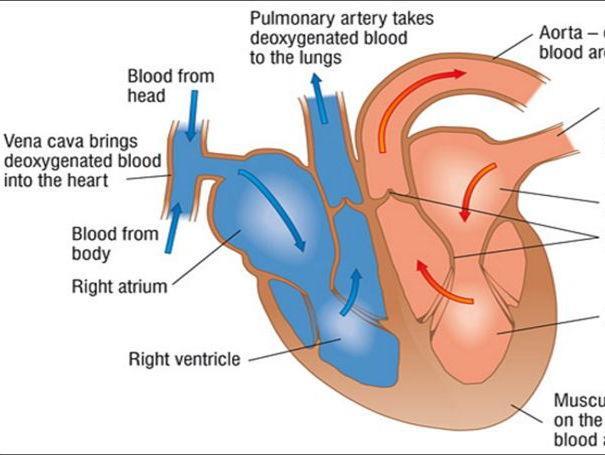

★Process the information – make note cards or a ‘table mat’ & collate per topic ★Use colour & pictures ★Practise structures, equations ★Include ALL the RPAs Condensing Notes Layering diagrams – add structures in one colour then functions in another Identify key vocabulary
Command Words in the Exam Question ► Complete ► State / Give / Name / Write Down ► Describe ► Use the information in… ► Calculate ► Suggest ► Compare ► Explain ► Evaluate Ensure you read and understand the whole question.
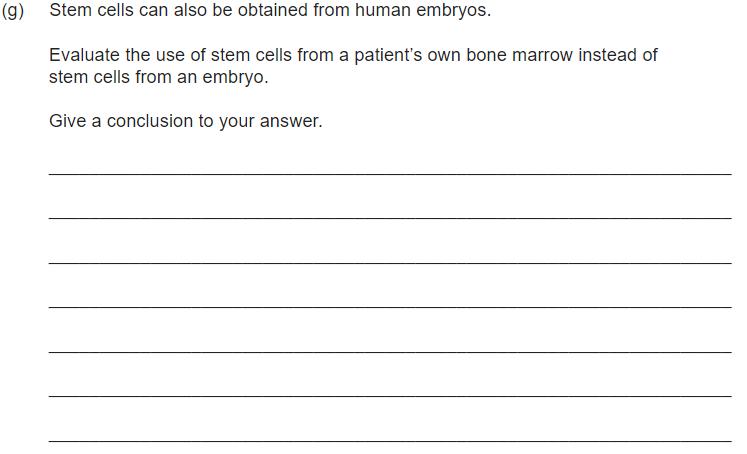
How to answer the question Identify command word Identify topics –ensure you have answered all parts of the question Plan before answering and use bullet points!
Physics ► Equations – 23 to learn, be familiar with equation sheet provided (2023 exams only - all equations will be provided on a full equation sheet. Students must be familiar with this so they don’t spend too much time searching for equations) ► 30% mathematical skills ► Units ► Prefixes e.g km ► 15% Practicals – methods (use MICRA to structure answers), investigation questions Revision resources for all Paper 1 topics have been shared with all students through Google Classroom. Paper 2 topics will follow soon.
Chemistry
► Only the Periodic Table is given (don’t learn it - but do learn how to use it effectively)
► Must learn ALL equations for calculations, the reactivity series of the metals (in order), common ion charges
► 20% maths – so students must practise calculations often
► Graphs - be able to draw and analyse graphs, including gradients from tangents
Chemistry Google site has a variety of tips, links & many revision resources by topic (students have access from Crypt student page - this is the icon to click)
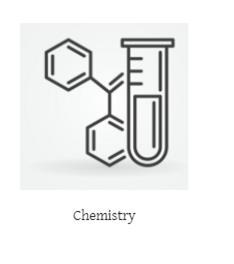

Biology ► 10% Maths ► Vocabulary spelling and definitions. This includes practical terminology e.g. accurate, precise etc. ► Don’t just focus on learning the content, identify what skills you need for each module e.g. genetic crosses, drawing pyramids of biomass, as well as general skills such as graphing. ► 15% Practical skills questions (CORMMS). Biology SharePoint site - continually being reviewed. (students have access from Crypt student page - this is the icon to click)
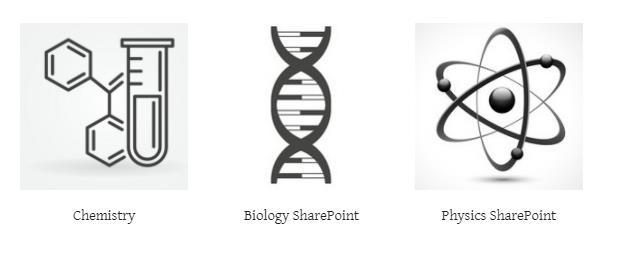
Science Resources ● Sharepoint/Google site for each science (student part of website) ● Revision Sessions – make use of them! Additionally: ● Textbooks and Revision Guides ● Lab book and online resources e.g. Malmesbury School RPA films ● Zigzag revision grids ● Apps/Online e.g. Seneca, Gojimo and Quizlet ● Past paper exam question packs per topic ● Physics and Maths tutor website - excellent for all sciences ● GCSE support booklet has many links
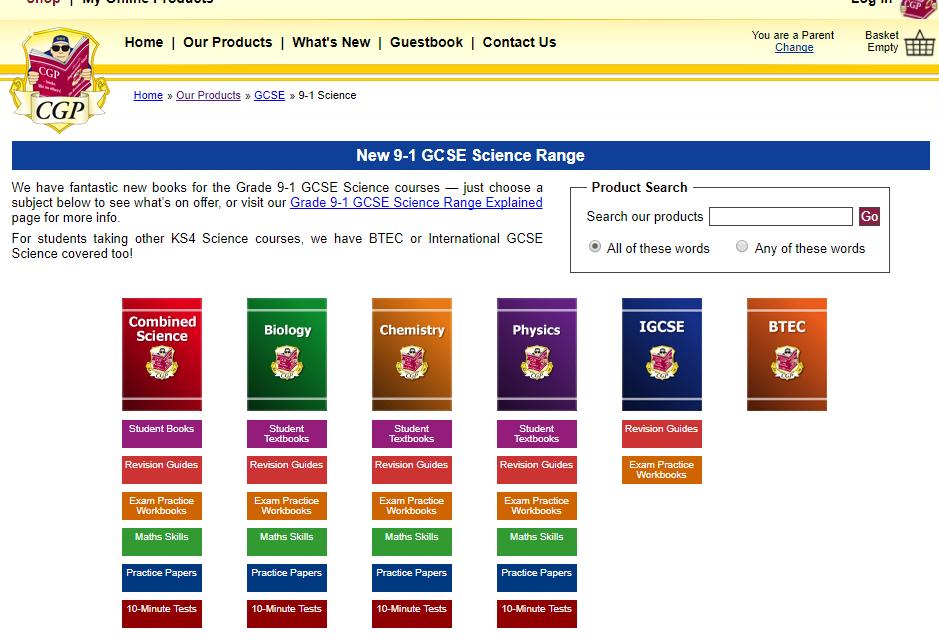
We recommend CGP Revision Guides – For AQA GCSE Grades 9-1 REVISION GUIDES WORKBOOK of Questions 10 MIN TESTS books FLASHCARDS TARGETED GRADE 8-9 PRACTICE PAPER BUNDLE Some have been offered through the school All links in the Yr11 support book
– Support & Revision Biology – Week 1 and 2 Tuesday 3.15pm. Revision/Support in room 18. Open to all. Chemistry – Every Thursday lunchtime, Lab 4 Topics have been published. Some students have been invited but ALL students welcome. Physics – Every Tuesday lunchtime Week 1 - E1 Week 2 - Lab 5 Topics have been published. Some students have been invited, all others are welcome.
Science
Higher Tier vs Foundation Tier
After the second Y11 mock (March), will be looking at grades that are not a strong Grade 4 (over the 2 mock papers) and conversations will be had with parents/guardians about higher vs foundation tier of entry. This is normally only a very small number of students.
Summary: Separate sciences - decision made per science Higher Tier - grades available 9-4 (below a 4 is a U-grade)
Foundation Tier - lower demand questions. Grades available 5-1.
Combined Science - all science papers would ALL need to be higher OR foundation - grades available at higher tier from 9-9 to 4-4 and foundation tier 5-5 to 1-1




















